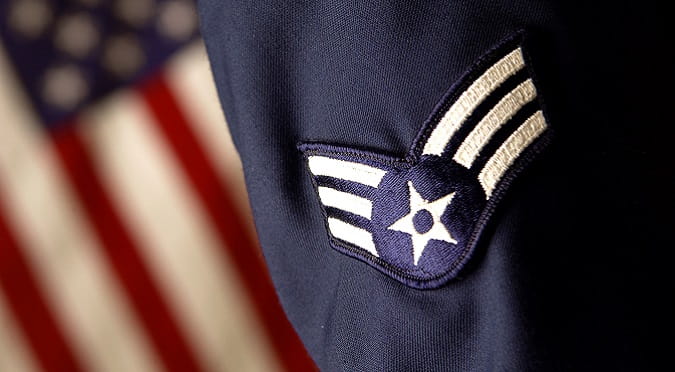
May 29, 2018 | InBrief
From the command post to the boardroom
From the command post to the boardroom
To mark National Military Awareness Month, I decided to share my story of transition from the military to civilian life. Many distinctions exist between the military and the civilian world and these differences can be hard to navigate for those making the transition.
One day while watching television, I saw an Air Force recruiting commercial. I liked the idea of seeing the world and learning new skills. I set up a meeting with a recruiter and enlisted in the Air Force that day. I ended up having a six-month delayed report date and started December 26, 1990.
After completing basic training and technical school, I began my military career as a command and control specialist working in a command post where leaders dealt with reporting, emergency situations, special events, distinguished visitor arrivals, etc. I traveled internationally as part of joint exercises with other countries and was deployed to Germany to provide support during the Bosnian War.
While in the Air Force, I had a son. When he was nine months old, I received my first set of remote orders to a base in Greece; unfortunately, you can’t bring family with you on a remote assignment. I decided to turn down the orders knowing I would not be allowed to reenlist once my current enlistment ended. Two months later, I received a second set of remote orders to South Korea. Still not comfortable with leaving my young son, I requested an early release from the military due to my parental responsibilities.
I was 27 years old with a young child and was facing my greatest challenge: how to reintegrate into civilian society. The first order of business was finding a way to financially support us.
I worked with a career advisor; he reviewed and assessed my military training and experience and translated it into a civilian career path. Based on my experience, pursuing a position in an administrative capacity made the most sense. My first job was a temp-to-permanent position, and after three months, I was offered a full-time position. I’m eternally grateful to a military mentor, a Captain, who urged me to take computer classes and advanced courses to learn new skills. Today, I still rely heavily on the skills I learned.
The military model is pretty cut and dry when it comes to behavior, expectations, and accountability. Important lessons in the military revolve around how to do your best, how to lead, and how to follow. Making solid decisions quickly is paramount because people (and sometimes lives) depend on you.
At times in the civilian sector, I have experienced ambiguity and less structure, which can create challenges for me given my military training. Sometimes, I can be too direct with feedback and have opinions that are too “black and white.” My expectations of others are still calibrated through a military lens. These are traits I’ve had to adjust over the years to be successful in my civilian career.
Although I’ve been out of the military for 20 years, many of the skills I acquired during my service help me be more effective in my job. The confidence I acquired and discipline I learned while in the military helped me successfully raise my son, graduated summa cum laude from Loyola University, and landed me here at West Monroe supporting the CEO.
At West Monroe, I’m a member of our Veterans Committee. There’s a comfort and camaraderie I feel with the other members based simply on our shared military background. Though our experiences were different, we share a bond that only we understand. I’m very proud to have served in our military and truly value my experience.
Best wishes to all the former and current serving members during Military Awareness Month. I appreciate and thank you for your service!

